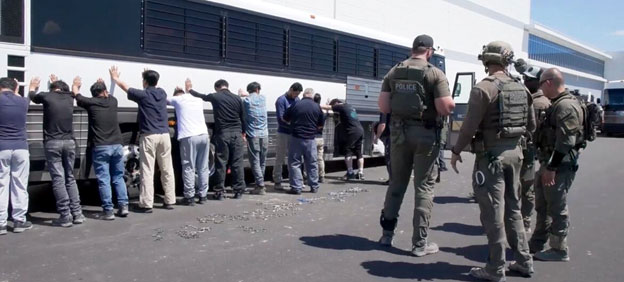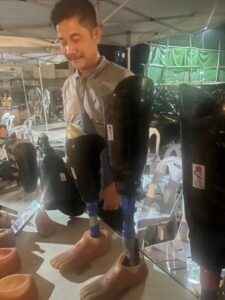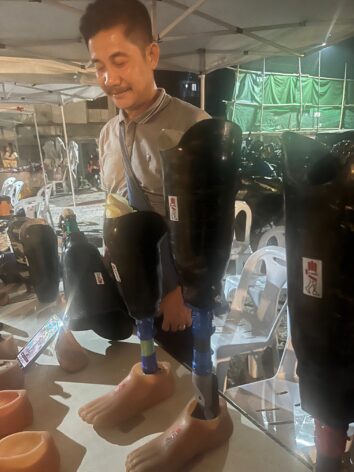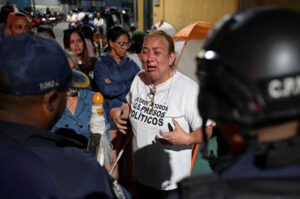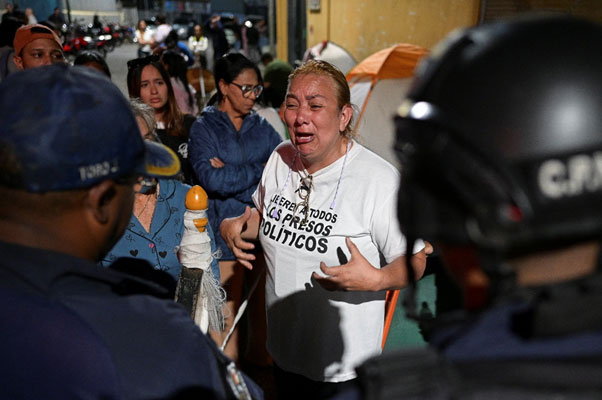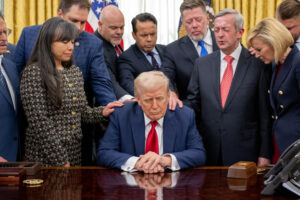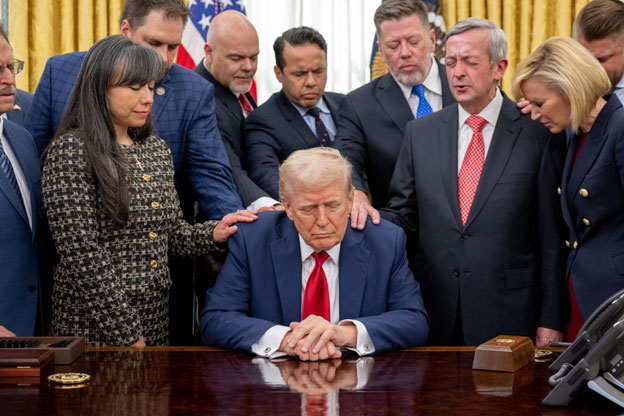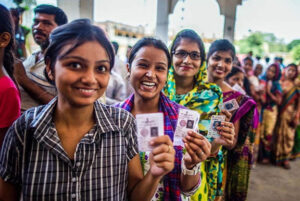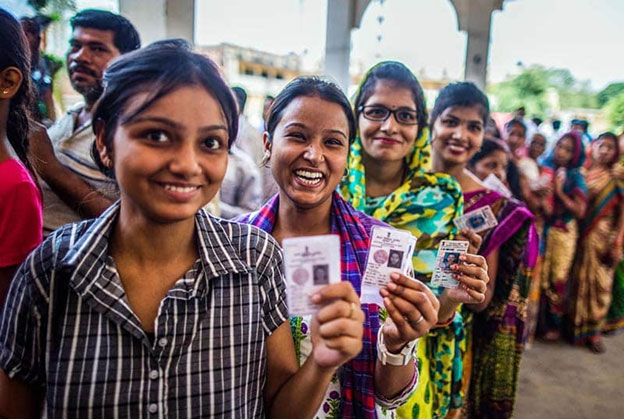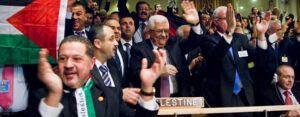
Civil Society, Featured, Global, Global Governance, Headlines, International Justice, IPS UN: Inside the Glasshouse, TerraViva United Nations
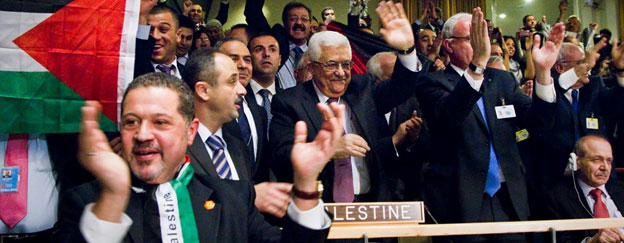
The General Assembly adopted a resolution in 2012 granting Palestine the status of non-member observer State in the United Nations. Credit: UN Photo/Rick Bajornas
– The 193-member General Assembly, the highest-ranking policy-making body at the United Nations, is most likely to elect Palestine as its next President in an unprecedented move voting for a “non-member observer state”—a state deprived of a country to represent.
The Secretariat has received three nominations for the position of President of the General Assembly beginning mid-September. In accordance with the established regional rotation, the President of the 81st session will be elected from the Asia-Pacific Group.
The election will be held on June 2, with three nominations so far: Md. Touhid Hossain (Bangladesh), Andreas S. Kakouris (Cyprus) and Riyad Mansour (Palestine).
According to geographical rotation, it will be the turn of the Asia-Pacific Group to nominate a candidate– with the final election by the General Assembly.
The current front-runner, according to diplomatic sources, is Palestine. In virtually all UN resolutions relating to Palestine, it has continued to receive an overwhelming majority of votes in the General Assembly.
The political support for Palestine among member states has always remained constantly strong. And the election of Palestine will also defy a hostile White House.
In November 2012, the General Assembly voted to upgrade Palestine to a “non-member observer state” with a majority of 138 votes in favor, 9 against, and 41 abstentions.
- • Votes in Favor (138): Supported by a majority of UN member states.
• Votes Against (9): Canada, Czech Republic, Israel, Marshall Islands, Micronesia (Federated States of), Nauru, Palau, Panama, and the United States.
• Abstentions (41): Countries that did not vote for or against.
Last December the General Assembly overwhelmingly adopted a draft resolution reaffirming the Palestinian people’s right to self-determination, including the right to an independent State of Palestine.
The draft resolution was approved by a majority of 164 member states (out of 193), with eight countries voting against it, namely Israel, the US, Micronesia, Argentina, Paraguay, Papua New Guinea, Palau, and Nauru.
Nine countries abstained: Ecuador, Togo, Tonga, Panama, Fiji, Cameroon, the Marshall Islands, Samoa, and South Sudan.
Dr Stephen Zunes, Professor of Politics at the University of San Francisco and director of Middle Eastern Studies, told IPS a broad international consensus in support for the establishment of a viable independent Palestinian state in the occupied West Bank and Gaza, and naming a Palestinian as the next president of the UN General Assembly would send a strong message to the Israeli government and its supporters in Washington that the State of Palestine, now recognized by 164 of the UN’s 193 states, should be treated like any other nation.
It would also underscore that Palestine is represented by the Fatah-led Palestine Authority, not by Hamas, which forcibly seized power in Gaza in 2007, he said.
“If Palestine is elected to the General Assembly presidency, the position would likely go to Riyad Mansour, a U.S.-educated diplomat who currently serves as the country’s UN ambassador”.
Mansour, he pointed out, has spent most of his life in the United States, has worked with Youth4Peace and other groups promoting peacebuilding, has no association with terrorism, and is generally considered a moderate.
“Nevertheless, his selection will likely result in an angry backlash from Washington, which opposes any formal role by anyone representing Palestine”.
In 2017, during his first term, the Trump administration blocked the appointment of former prime minister Salam Fayyad, also a well-respected moderate and reformer, from leading the U.N. political mission in Libya to try to end that country’s civil war simply because he was Palestinian, declared Dr Zunes.
Dr Ramzy Baroud, a Palestinian-American author and editor of The Palestine Chronicle, told IPS
two international campaigns are unfolding simultaneously: a US-led effort aimed at legitimizing Israel while it is still actively attempting to exterminate the Palestinian people, and a General Assembly–championed track aimed at legitimizing Palestine, Palestinian rights, and the Palestinian struggle.
The push to elect Palestine as the next UN General Assembly president — though the State of Palestine remains an observing member and lacks actual sovereignty on the ground — is taking place against this stark backdrop: one campaign normalizing and shielding a genocidal state, the other seeking to affirm the rights and political standing of a dispossessed nation, he pointed out.
“Nothing could be more immoral than Washington’s attempt to rehabilitate Israel diplomatically amid genocide. And nothing could be more just than the effort by Palestine’s allies to anchor Palestinian rights within international legitimacy” he said..
Yet a difficult question remains: while the US is gradually chipping away at Israel’s isolation, is much of the international community offering Palestinians little more than symbolic victories?, he noted.
“If the legitimization of Palestine at the General Assembly is to move beyond symbolism, it must translate into concrete recognition of Palestinian territorial rights, sovereignty, and freedom. Legitimacy must not remain rhetorical; it must become political and material,” Dr Baroud argued.
“This requires that the UN General Assembly states that support Palestine in international forums carry that support onto the ground — by isolating Israel diplomatically, severing ties, imposing sanctions, and adopting meaningful accountability measures. While some states have taken such steps, others continue to pursue a precarious “balance,” appeasing Washington and Tel Aviv while paying lip service to Palestine.”
Palestinians are winning what Richard Falk, the former UN Special Rapporteur on Palestine, has called the legitimacy war. But legitimacy as an intellectual or moral category is not enough. At this historical juncture, it must be transformed into enforceable political reality — into sovereignty, protection, and freedom on the ground, said Dr Baroud.
“We hope that the continued centering of Palestine at the UN and across global institutions strengthens the growing current of solidarity worldwide. More importantly, we hope that symbolic recognition will soon give way to decisive and tangible action,” he declared.
Samir Sanbar, a former UN Assistant Secretary-General and head of the Department of Public Information, told IPS the Inalianble rights of the Palestinian people, confirmed repeatedly by the General Assembly, would offer an opportunity for the Permanent Observer Mission to offer a candidate for the President of the General asembly.
Ambassador Riyad Mansour has served at the United Nations post longer than many current “Permanent Representatives” and would most likely attract wide support, particularly at these challenging times with the tragic humanitarian situation in Gaza, he said.
IPS UN Bureau Report


